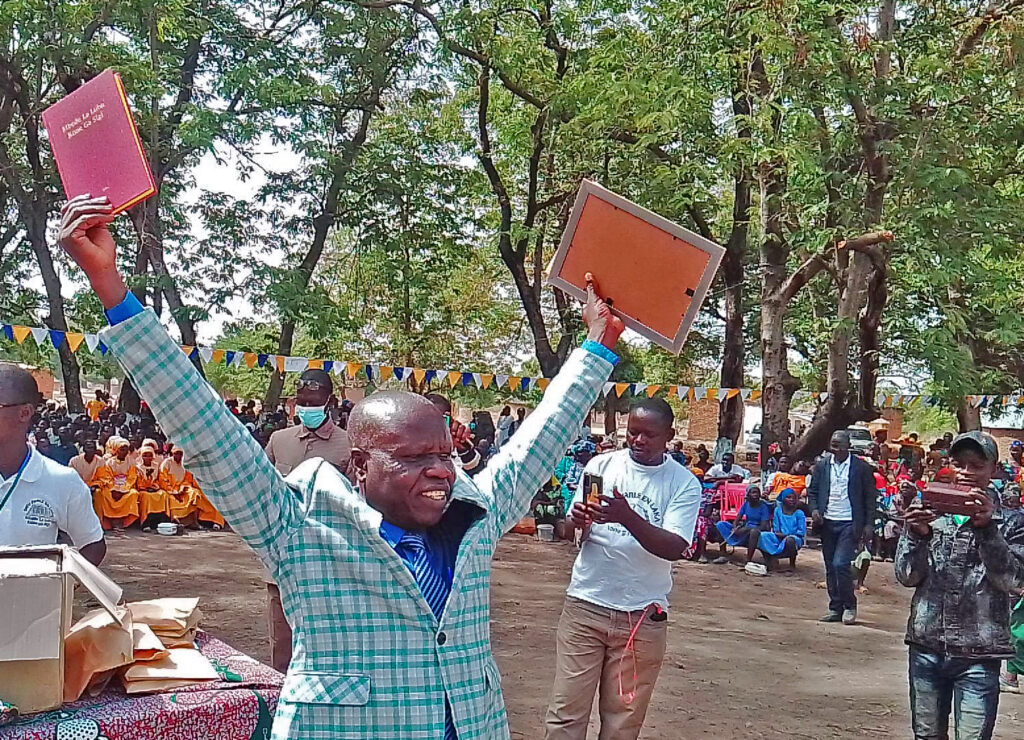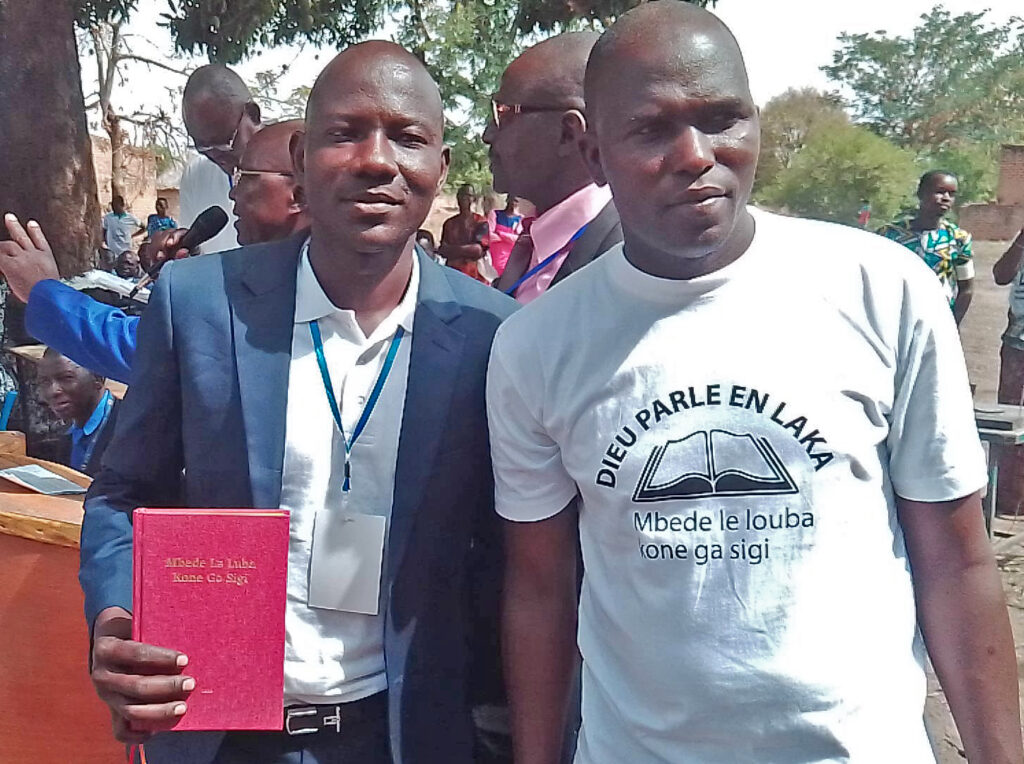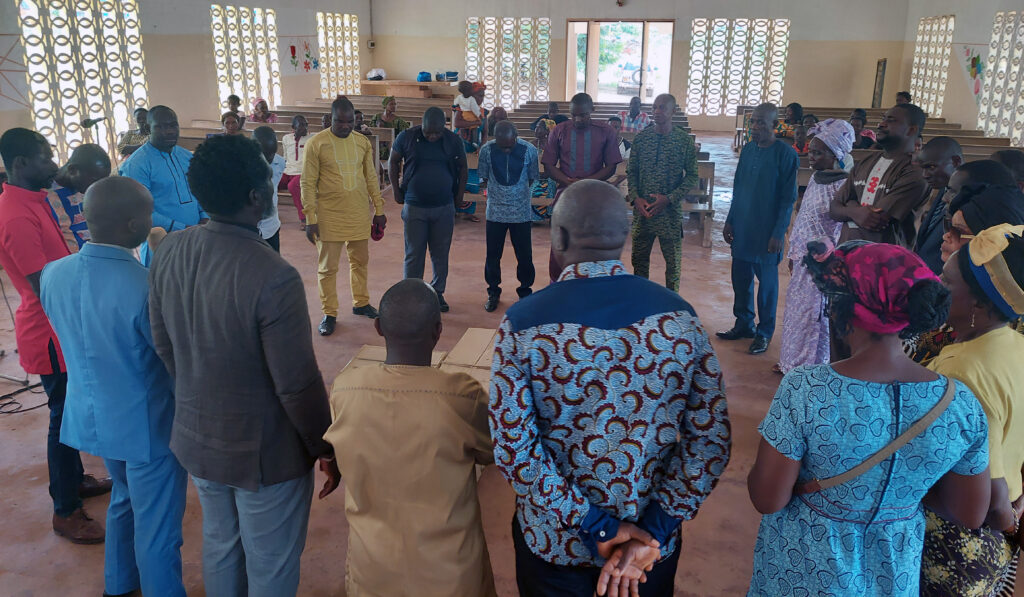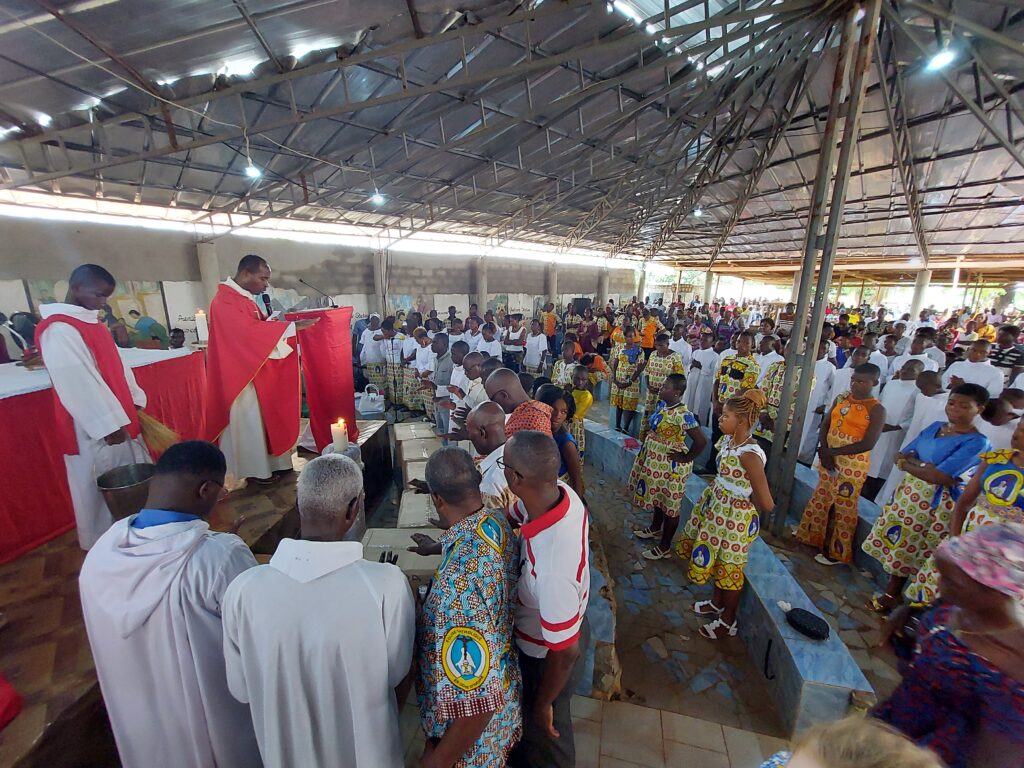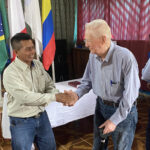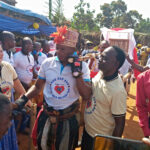A Reason to Step Onto the Boat
Rukundo Abel knew only how to sink in water, not float. That is a problem for someone who routinely travels across Lake Victoria—the largest lake in Africa and the second-largest freshwater lake in the world—to deliver Bibles.
A while ago, Rukundo visited a church on one of the islands that dot Lake Victoria. He asked the congregation, “Raise up your Bible.” No one did.
Astounded, Rukundo asked why they didn’t have Bibles. The people responded: “Bibles are expensive to buy and very far from us.”
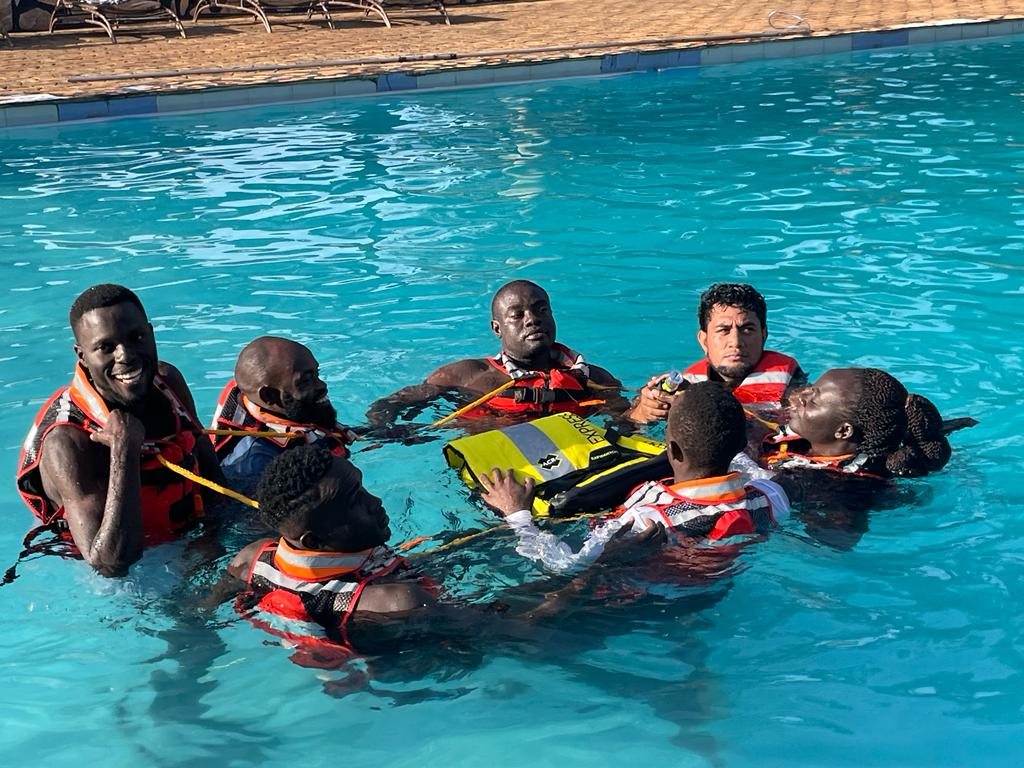
It would take more than three days for an islander to reach the mainland via boat and then travel to the capital city to purchase a Bible. Such a trip was more than they could afford.
Overwhelmed by this need, Rukundo asked God: “What do I do?” The Lord told him to start with what he had. So Rukundo pulled out the few translated Bibles at his house and gave them to people on the islands. Then he explained the island residents’ need to people at YWAM (Youth With a Mission), where he taught Bible school, and people gave him the appropriately translated Bibles.
“I thought we would give out Bibles to a few people,” Rukundo said, “but [we] realized there are many islands [that have] never [been] reached.” He realized that Lake Victoria was much larger than he had thought.
“We have so far covered 80 islands on Lake Victoria and given out 8,460 Bibles,” Rukundo explained. “We are making sure that everybody receives a Bible in their language. We discovered that many people have the Bible in their language, but they have never received it.”
Reaching the islanders with God’s Word is not easy. Rukundo and his team with End Bible Poverty Now, a partner of YWAM, hire fishing boats to reach the islands, and sometimes the trips take nine hours. Several times, his life and the lives of his team members have been endangered as they tried to deliver Bibles.
Once, a team of 28 students from around the world returned with Rukundo from an island via boat at night. Wind blew up, driving their boat across the lake, and the engine got stuck in a fishing net. They paused to remove the net and began again, but they soon ran into other nets, and the engine stopped.
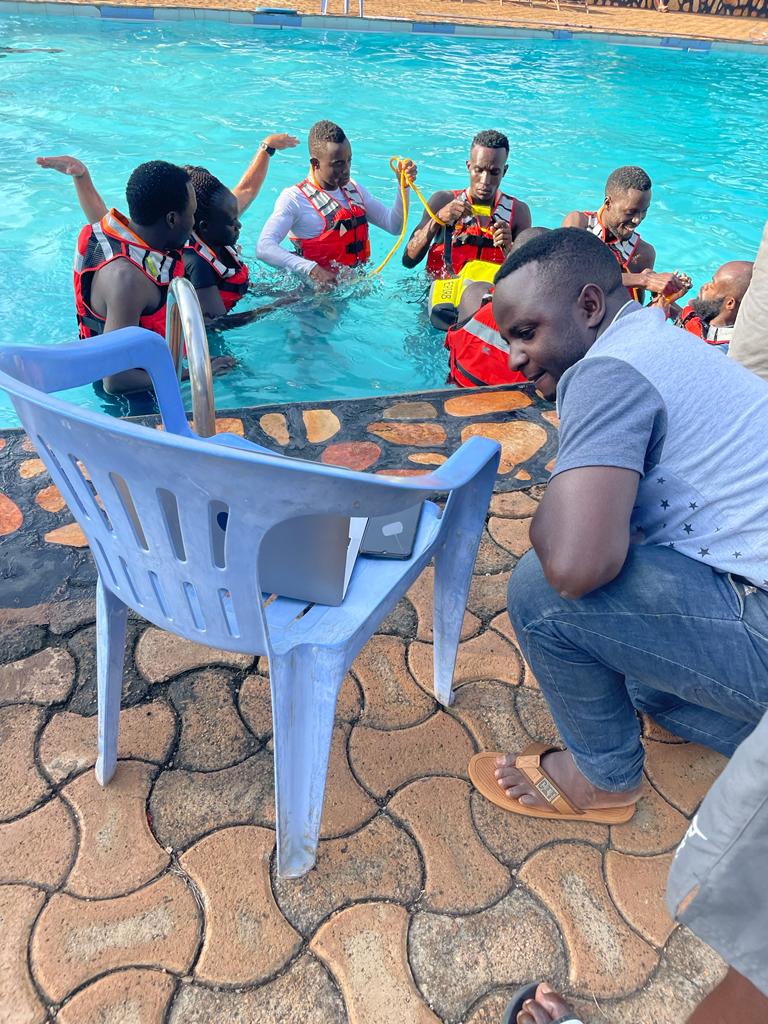
“The wind took us everywhere it wished, and you could hear the boat about to bust,” Rukundo recalled of the nightmarish journey. Some of team members called friends and told them where to find their bodies because they thought they would die. Others sang, cried, and repented of their sins, believing they were about to meet the Lord.
Thankfully, the driver was able to fix the engine, but it took four more hours to reach the mainland because they had to move slowly.
Rukundo knew that he was responsible for these people’s lives, but if the boat had capsized, he didn’t know how to swim or how to help anyone. Something had to change.
Then, this summer, the JAARS Sea Ops team conducted a remote training for Rukundo’s team in Uganda. We had sent his team life jackets and a kit with safety equipment because life jackets are expensive and hard to acquire in Uganda. The Sea Ops team wanted as soon as possible to teach them how to use the equipment.
Obviously, teaching water safety remotely is not preferred, as you can’t gauge the students’ reactions to the training or correct their mistakes as quickly or easily. “It’s not ideal doing it remotely,” Tony Hinton, one of the JAARS Sea Ops staff members, said, “but in this case, it was the best way that we could get them to start using their equipment and using it well.”
The training, even done remotely, had a big impact on the Ugandan team: “Tim [the director of Sea Ops at JAARS] coming in [to do this training] was a miracle for us,” Rukundo said. “It gave me hope and joy knowing that now when my team comes with me, if anything happens, I can tell them to put on a life jacket, and they are safe.”
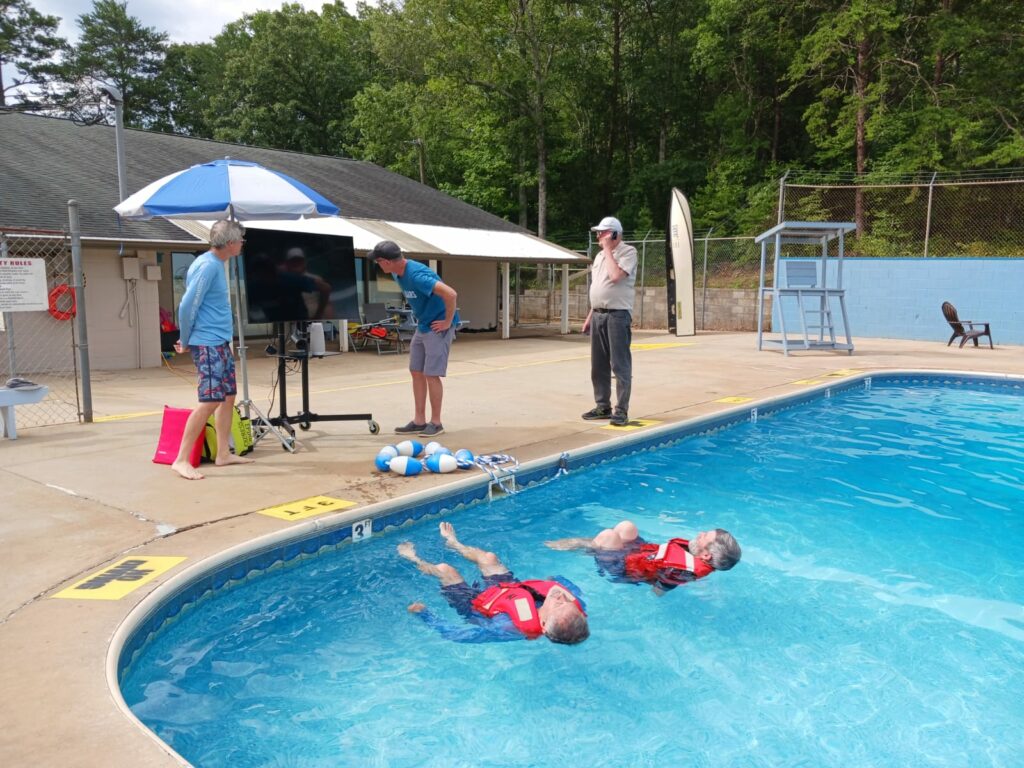
Abel has seen firsthand how, when he starts a journey across the lake, the weather can be calm, but when he reaches the middle, everything can change. “But now, knowing that when I have my life jacket with me, in case of anything, I am safe. It gives me confidence daily, that I can still keep on doing my mission that God has called us to do on the islands.”
JAARS is grateful that we can overcome the barrier of safety for our co-laborers in Africa so they can continue to deliver God’s Word to those who need it.
“I want to say thank you so much to Tim and the whole organization for supporting us,” Rukundo said. “I cannot thank you enough. It’s a big blessing to find that our lives are safe. It gives us a reason to [keep moving] to the islands and make sure that we do as much as possible. People still need those Bibles that are translated. And we are there to be the feet to take those Bibles to the people on the islands and other places of the country.”
Many of our co-laborers face similar challenges as they share the gospel. Partner with JAARS so we can do whatever it takes to deliver God’s Word by giving to Sea Operations.



























































